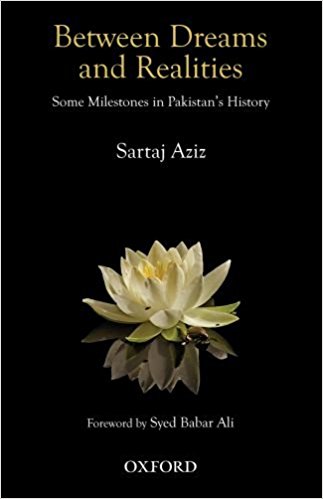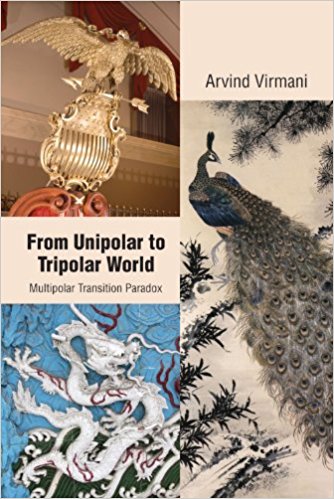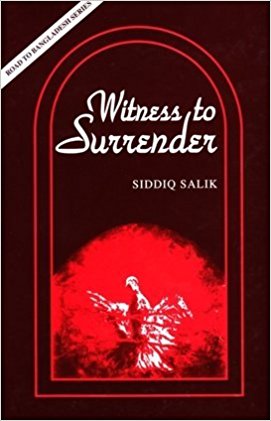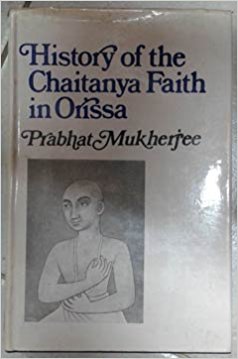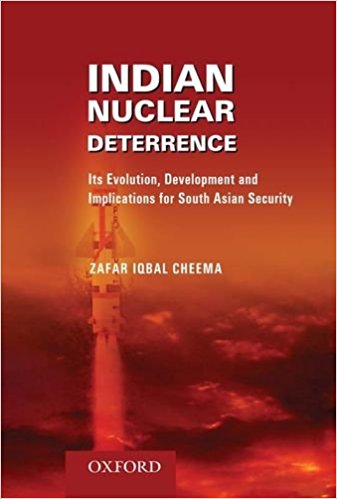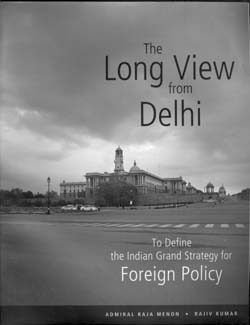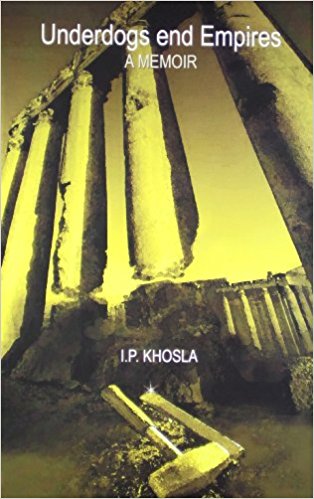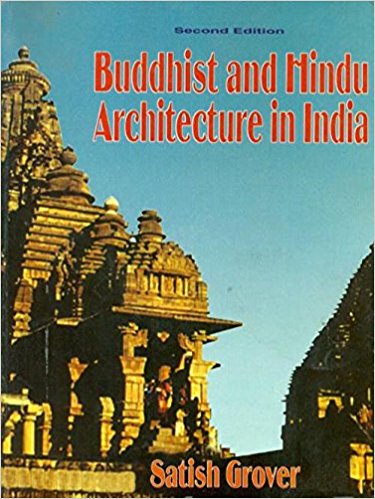Between the idea And the reality ………………………… Falls the Shadow This is the way the world ends Not with a bang but a whimper T.S. Eliot, The Hollow Men This is a sad, sad book, the autobiography of a promising Pathan boy born in the Frontier town of Mardan in 1929, the year the Muslim League hit its nadir, unable to gather even…
China and India are poised to join the United States as great powers well before 2050, shaping the world into a tripolar order instead of a multipolar one. With this strong assertion, the book tries to explain why the current multipolar global system will be short-lived than it is usually argued by international affairs analysts…
Siddiq Salik, one time lecturer and journalist joined the Pakistan Army as Public Relations Officer and his tour of duty got him to Dacca in January 1970. He remained there until taken as a prisoner of war to India where he spent two years mulling over the fiasco that his bosses had so callously brought about.
Over the years, debates on China-India relations have evolved from being just fashionable to becoming ever more rigorous and complex. Driven by the need to develop their special niche, a number of recent studies have begun to focus on examining and highlighting the enormity, complexity, uniqueness…
The words and names Orissa, Jagganatha and Chaitanya are synonymous. Prabhat Mukherjee says in the Preface of his book, ‘Chitanya’s influence on the religious history of Orissa was profound. Chaitanya is probably the only Hindu saint who was deified during his lifetime.
This book began in the 1980s and was almost ready in 1991, under the title Indian Nuclear Strategy. Such a book would probably have been a bestseller, suggesting to the Indian public that India had a nuclear strategy in the years when the Prime Minister was famous for his quote that not giving a decision is also a decision…
Strategic thought through the ages has been driven by the need to deal with the future. The safety and well being of kingdoms, monarchies, nation states, regional or global powers, as well as of virtual states like the modern multinational corporations, depended on knowing the future scenarios in which they will function…
Were segregationist USA and British India empires in any sense equivalent? And, with enough in common between them to be viewed in juxtaposition? Gerald Horne’s case, in this slender but revelatory narrative, goes beyond establishing likenesses between the Jim Crow regime and John Bull’s raj…
I.P. Khosla’s book Underdogs End Empires seeks to give an uncommon perspective on international relations(IR), that of the underdog. This perspective developed, as the author explains in the preface, in the 60s and the 70s—the grand period of decolonization—from discussions with diplomatic colleagues from India and from the newly liberated countries, his readings and, of course, from his diplomatic experience in various capitals…
Although Cunningham, Fergusson and Marshall had drawn the world’s attention to the tradition of’ great architecture in the Indian subcontinent, it was left to Havell to identify the concepts which constituted the basis of the architectural plans.
The debate about whether human behaviour is innately warlike and violent or peaceful and gentle is centuries old. It is no nearer resolution today than it was decades ago when far less was known about genetic influences on human behaviour. And it is unlikely to be resolved soon; partly because it is embedded…
Diplomats, particularly those who have been in the spotlight, write memoirs once they have removed the mask of their profession and hung them up for good. Retired Indian diplomats are no exception.
This compilation of essays endeavours to look beyond documented history to reveal the facets which have been remained ignored by mainstream historians and literatteurs of the time. The authors focus on the collective memory, which has remained alive in folk songs, country music, rural arts and local literature…
Though of recent origin, political pornography is a well-established literary genre in India today thriving on what Yunus rightly describes as the ‘prevailing mood of our high-minded intellectuals to read gossip.’ What began as a mild stimulant following the news-starved years of Emergency became in the permissive milieu of Janata rule full scale pandering to political prurience.
Vishakha is a rebel questioning her familys attitude towards child abuse, medicare, day to day functioning of the household, education of the girlchild, marriage and childbirth. She is in daily conflict with tradition and backwardness, modernism appears logical to her, she is also a brilliant and studious student…
Sudha Aroras Aam Aurat: Zinda Sawal provides an authentic saga of the sufferings of women each stratum in society. The book consists of five parts including a long biographical piece about her writing from a very young age. Her progress, surprising achievements in a row, inspired her to go ahead. Gradually a day arrived in 1992…
Cutting into the heart of a corpus of travel narratives Gagan Gill’s Awaak(Speechless) is a striking account of her pilgrimage to KailashManasarovara phantasmagoric chimera for most of us. Merging fable, myth and history with theology, Gagan Gill whisks us off along her peregrinationundertaken as a proxy for her husband…
During last few decades the areas of Hindi Criticism have expanded and Manager Pandey is one of the critics in the decades after Independence who defined that literature is not separate form society and hence growth of literature cannot be disassociated from the growth of society. The tools of Manager Pandeys…
Vimal Kumars third poetry collection, published by Vaani Prakashan in 2009,the litany of woes of water becomes a metaphor for the woes of the modern man with his surroundings, with the world at large.There is nothing new or revolutionary in a poet talking about the deterioration of values, erosion of trust or corruption in practically every sphere of life but in Kumars hands…
The world depicted is not real; at least not in the eyes of people who perceive mundane things with little sensitivity. In Sharmas world youll find towns, trees, and objects conversing, raising a point, debating it and sorting it out. Everything has life; life that people have forgotten to live. And even if they live it, they rarely celebrate it…

